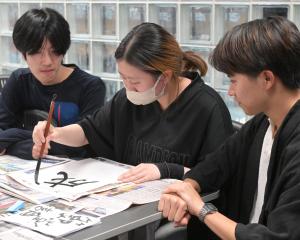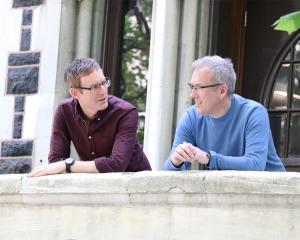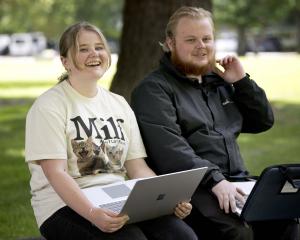
Schools and universities are often targeted, looted, burned or used for military purposes, and those who work there are harassed and censored because of the thoughts they share and the questions they ask.
Eventually, many are forced to leave their country for their own safety.
So the University of Otago has joined Scholars at Risk (SAR).
SAR is an international network of higher education institutions and individuals, dedicated to protecting threatened scholars, preventing attacks on higher education, and promoting academic freedom and related values worldwide.
University of Otago vice-chancellor Grant Robertson said the network’s values aligned with Otago’s — protecting scholars and promoting academic freedom.
"In the world we live in today, we are all aware of significant conflicts and displacement of people.
"This is a practical step the university can take to support those most impacted, to continue their academic study and research.
"SAR provides support, among other things, for universities to provide a home for academics who are displaced or whose work is disrupted by conflict.
"We join more than 300 host institutions across the world, committed to protecting and promoting academic freedom."
Dunedin and the wider Otago community had a long history in welcoming individuals and families who had been forcibly displaced from their homes.
"We are proud to do our part in supporting that."
Alongside partnering with SAR, the university is also in the process of establishing scholarships for two undergraduate students and two doctoral candidates from conflict zones.
College of Education dean Prof Vivienne Anderson has conducted substantial research on the experiences of students with refugee backgrounds, and said educated citizens played a critical role in the work of peace-building and the re-establishment of a stable civil society after conflict.
"Supporting displaced scholars’ ongoing access to education and academic engagement is both an ethical response to urgent human need and an investment in more peaceful global futures.
"It is strategic and timely to actively support displaced scholars at a time when forced displacement is at the highest level since World War 2."
Unesco refugee integration through education, languages and arts chairwoman and University of Glasgow languages and intercultural studies Prof Alison Phipps said news of the University of Otago’s support for SAR was "immensely welcome".
"I have witnessed the difference it makes to those who find protection for themselves, their families and their scholarship.
"My respect, gratitude and solidarity to the university in taking this step and making such profound change possible.
"Your gesture strengthens the work we are all doing to build sustainable peace."












